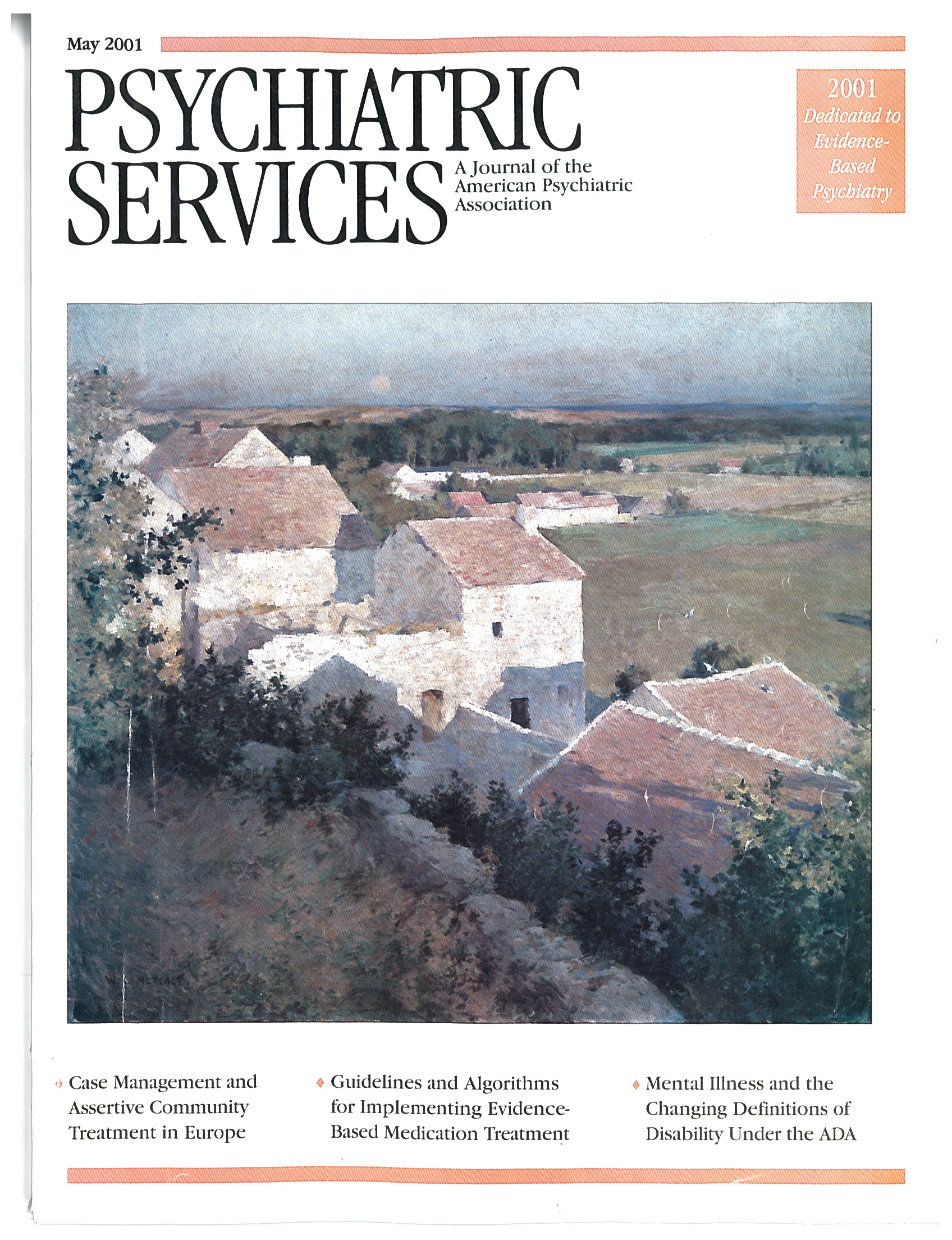Evidence-Based Pharmacologic Treatment
A special focus of Psychiatric Services this year is on implementing evidence-based practices in the treatment of persons with severe mental illnesses. Evidence-based practices are those for which research has found substantial evidence of effectiveness and that should therefore be routinely offered in clinical settings. In this month's contribution, Thomas A. Mellman, M.D., and his colleagues describe guidelines and algorithms that have been developed to ensure that medication treatments provided to persons with severe mental illness are evidence based, especially in their sequencing. They also identify barriers to the implementation of guidelines and algorithms, particularly fears among consumers and families—and even among clinicians—that these tools represent a dehumanizing trend in health care (see page 619).
Living and Working
Two articles in this month's issue highlight the difficulties that persons with severe mental illness often encounter when they attempt to live productive lives in today's complex world. John Petrila, J.D., LL.M., and Thomas Brink, J.D., describe three 1999 U.S. Supreme Court decisions that have made it increasingly difficult for persons to qualify as having a disability as defined under the Americans With Disabilities Act (ADA). The authors suggest ways that mental health professionals can help the courts understand the particularly disabling features of severe mental illness (see page 626). Michael D. Ullman, M.A., and associates examine some troubling effects of a 1995 U.S. Equal Employment Opportunity Commission decision to implement a three-tiered policy for processing the thousands of discrimination charges filed under the ADA and other statutes. Since 1995, charges filed by persons with psychiatric disabilities are significantly less likely to be assigned a high priority than charges by other claimants and are also less likely to result in real benefits (see page 644).
Social Phobia Among Men and Women
An article by Kimberly A. Yonkers, M.D., and her colleagues launches a series of planned articles on current research in the diagnosis and treatment of anxiety disorders. These authors examined eight years of data from the ongoing Harvard/Brown Anxiety Research Program, which was established in 1989. They hypothesized that women would have a more chronic course of social phobia. However, they report that among 163 patients with a diagnosis of social phobia, only 38 percent of women and 32 percent of men experienced a complete remission during the eight-year period—a difference that was not significant. The authors describe subgroups of women who may warrant more aggressive treatment (see page 637).
A Public Health Perspective on Violence
Acts of criminal violence by persons with mental illness are highly publicized and have a powerful impact on public fears. Research has produced conflicting results about whether these individuals are more likely to commit violent acts than persons in the general population. Heather L. Stuart, Ph.D., and Julio E. Arboleda-Flórez, M.D., Ph.D., examined data from more than 1,100 remanded offenders. They found that 61 percent had either a psychiatric or a substance use disorder. Using an approach that is common in public health research, they show that the risk of violence in this group was low, and that only one in ten violent crimes in the sample would not have occurred if these disorders did not exist (see page 654).
Case Management in Europe
At a symposium at the World Psychiatric Conference in Hamburg in 1999, researchers from several European countries engaged in a discussion about the delivery of case management services and explored possible reasons for differences in the outcomes of case management studies in Europe and the United States. In an overview of findings from the symposium, Tom Burns, M.D., F.R.C.Psych., and his colleagues describe eight studies in Britain, Germany, Italy, and Sweden that highlight variations in the structures of programs and services in those countries as well as cultural factors that may offer some explanations for the outcome differences between U.S. and European studies (see page 631).
Briefly Noted…
• A California study found that religious beliefs and activities constitute an important coping strategy among persons with persistent mental illness (see page 660).
• In the Practical Psychotherapy column, Marcia Kraft Goin, M.D., Ph.D., cautions prescribing psychiatrists not to neglect their psychotherapy role in split treatment (see page 605).
• The book review section highlights some contemporary debates and controversies in psychiatry and in health care generally (see page 691).

